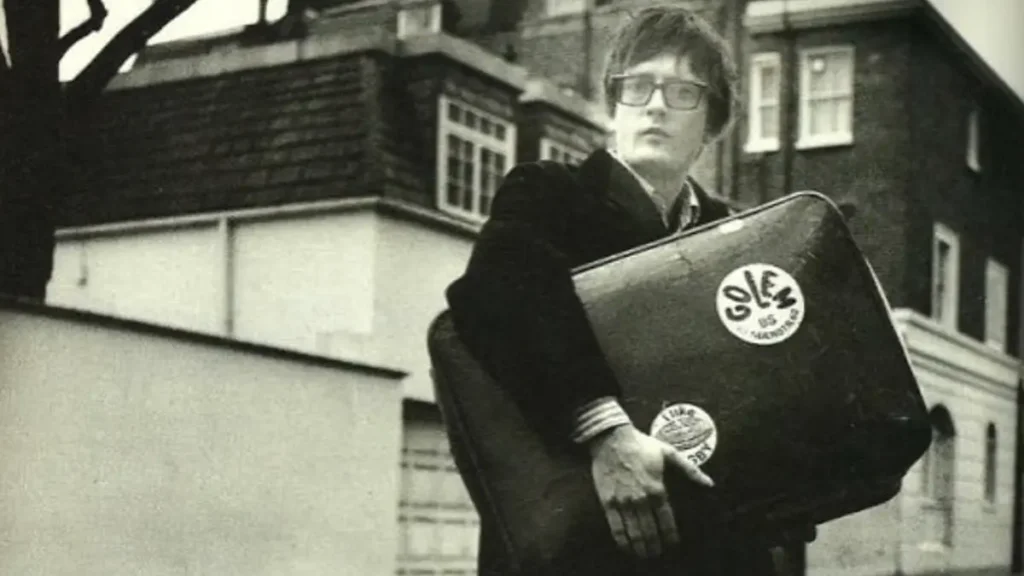The magnificent mental meanderings of Jarvis Cocker, and a passionate perspective of everything around him, past and present.
Early Life and Inspirations
Jarvis Cocker is the singer, songwriter, director and philosophical muse who helped propel a nation into and beyond Britpop. Across three decades in the spotlight he has upturned and undone countless strands of social etiquette, reassessed class warfare and mooned Michael Jackson at the BRITs, all the while empowering an army of music lovers into feeling accepted, no matter how alternative, quirky or uncool they might appear.
“When you’re a kid growing up,” he begins, “you’re living every day in the moment. It’s only when you get older do you understand your place in the whole system, and that can be slightly disconcerting… that moment you realise just how different or unconventional, or how far away from the holy grail you are.”
Jarvis Cocker’s reaction to that discovery was to use all his experience of growing up in social housing, and the lower middle-class elements of working-class Sheffield, as a vehicle to a different life.
No products found.
Formative Years in Music
“At one point I worked on a fish stall, and a lot of the market humour, the sarcasm, ribbing, quipping and such, definitely rubbed off on me. You had to be quick and there was no hiding away, which I’d done a lot of before then. It was through experiences like that, that I saw charisma and uniqueness as a way of being someone that everyone else wasn’t.”
Through music, Jarvis Cocker excelled. He formed indie band Pulp, whose first gig was at the Leadmill in Sheffield. “It was an all-day festival, and we were on painfully early, but it was a raw experience that gave us the encouragement and impetus to carry on.”
It would be four years until the band signed their first record deal, however, not that such a delay ever fazed the frontman. “It was always somewhat comforting that it took us so long to make the breakthrough. I couldn’t ever think of something any worse than being propelled into stardom from absolute obscurity.”

Breakthrough and Britpop Era
By that point living in London, with Jarvis Cocker’s studies at the lyrically much-discussed St Martin’s College further opening up his perspective on the UK and its class system, the ascent of the band collided perfectly with an indie music revolution and, thereafter, the advent of Britpop in the mid-Nineties.
“The timing was perfect – there was a sudden intensity to what the band was doing. Musically we’d obviously had a long time developing our sound, but people were interested in us as people, which was bewildering, but exciting. That’s why I’d never regard the frustrations of that first decade together as a waste – essentially it became some kind of schooling for what followed.
“Suddenly we got swept along by this huge thing that was going on – Britpop. We were catapulted by this bullet that also had Oasis, Blur, Suede, Supergrass, the Manics and a load of others sat on it.”
Solo Career and Social Commentary
In recent years, solo projects, radio DJing and deeply-constructed social commentaries have populated the singer/songwriter’s time, yet he remains the same. He still greets all life’s marginal contrasts with a flurry of ambivalence, much like common people navigating daily challenges. His dulcet, gravelly voice means you can’t ever imagine him being riled or argumentative, or even extraordinarily excited. It’s an ability to play the middle ground that makes him so ubiquitously appealing, and so wonderfully entertaining.
No products found.
Reflections on British Culture and Community
“British culture has a grubby eloquence that I feel is totally unique, though I do fear the loss of community in some parts. The North has lost some of that in recent years with the diminishing of industry and advent of the internet. I worry the sort of childhood I had is gone forever.
“A lot of people regarded lower-income, industrialised communities as uninspiring, but personally I found them fascinating. They gave me a lot of inspiration and there were a lot of good people. A few even bought my records…”








